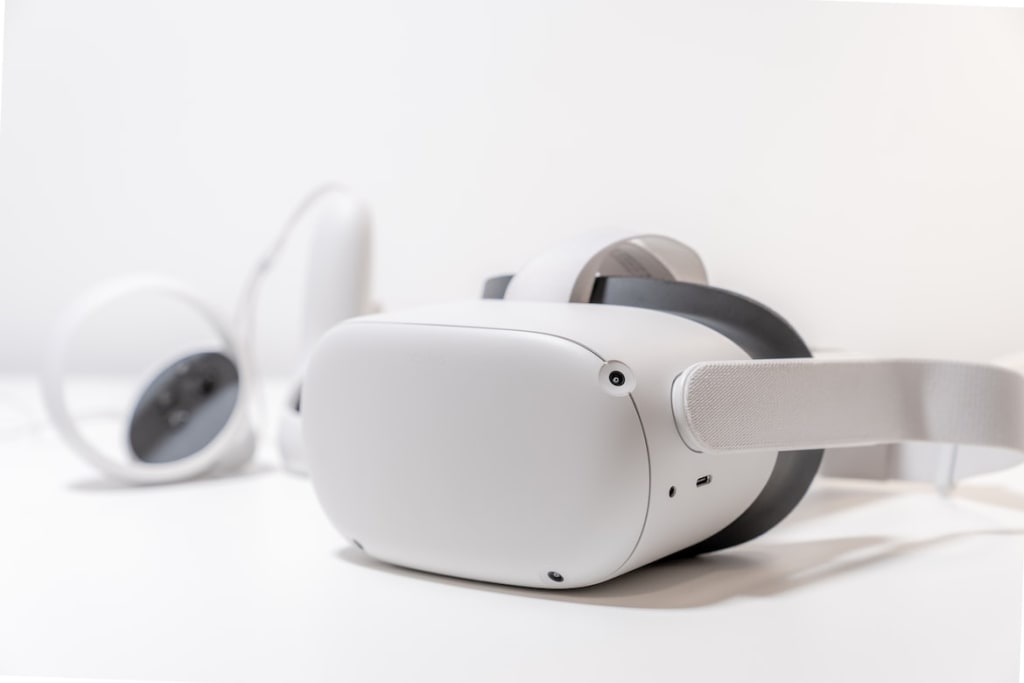The Rise of Virtual Reality: Exploring the Potential of VR Technology
How VR is changing the way we interact with digital content and the world around us

Virtual Reality (VR) technology has been around for decades, but it is only in recent years that it has become more accessible and widely used. With advancements in technology, VR is changing the way we interact with digital content and the world around us. From gaming and entertainment to education and healthcare, the potential applications of VR technology are vast.
In the world of gaming, VR has already made a significant impact. With the ability to fully immerse players in a virtual world, VR technology provides a more engaging and realistic gaming experience. Players can interact with virtual objects and characters in a way that was not possible before, making games more challenging and exciting.
But VR technology has applications beyond gaming. In the field of education, VR can be used to provide immersive learning experiences. For example, students can explore historical sites or scientific concepts in a virtual environment, making learning more interactive and engaging. VR can also be used in healthcare, allowing medical professionals to simulate surgical procedures and other medical scenarios for training purposes.
One of the most exciting applications of VR technology is in the field of social interaction. With the rise of virtual worlds and social platforms, VR provides a new way for people to connect and communicate with each other. In virtual environments, users can interact with each other in a more natural and immersive way than traditional video conferencing or messaging.
Despite the potential of VR technology, there are still challenges to overcome. One of the biggest challenges is the cost of VR equipment, which can be prohibitive for many people. Additionally, there are concerns about the potential negative effects of prolonged use of VR, such as motion sickness or eye strain.
Despite these challenges, the potential of VR technology is undeniable. As technology continues to advance and VR becomes more accessible, we can expect to see even more exciting applications of this technology in the years to come.
Another challenge that VR technology faces is the need for better content creation. While there are many VR games and experiences available, there is still a need for high-quality and diverse content that can keep users engaged over long periods of time.
To address these challenges, researchers and developers are working on new technologies and innovations to make VR more accessible and user-friendly. For example, there are efforts to create more affordable VR headsets that can provide a high-quality experience without breaking the bank. Additionally, there are ongoing efforts to improve the content creation tools and platforms to make it easier for developers to create high-quality VR experiences.
Another area of focus for VR technology is in the enterprise sector. Companies are beginning to recognize the potential benefits of VR technology for training, collaboration, and other business applications. For example, VR can be used to simulate dangerous or complex scenarios in a safe and controlled environment, reducing the risk of accidents or errors.
Overall, the rise of VR technology is an exciting development that has the potential to transform the way we interact with digital content and the world around us. While there are still challenges to overcome, the potential benefits of VR make it an area of technology worth investing in and exploring. As VR technology continues to evolve and become more accessible, we can expect to see even more innovative and exciting applications of this technology in the future.
One of the most promising areas of application for VR technology is in mental health. Virtual reality therapy has emerged as a potential treatment option for a range of mental health conditions, such as anxiety disorders and PTSD. By providing a safe and controlled environment, VR therapy can help individuals confront and overcome their fears and anxieties.
Another potential application of VR technology is in architecture and urban planning. Architects and urban planners can use VR to create and visualize 3D models of buildings and cities, allowing them to better understand the spatial relationships and functionality of the space. This can lead to more efficient and sustainable designs, as well as improved collaboration between architects, builders, and clients.
As the potential benefits of VR technology become more widely recognized, there is a growing demand for VR developers and professionals. The VR industry is expected to grow rapidly in the coming years, creating new job opportunities and career paths for individuals with the skills and knowledge to create and manage VR experiences.
In conclusion, the rise of virtual reality technology is an exciting development with the potential to transform many aspects of our lives. From gaming and entertainment to education, healthcare, and business, VR is changing the way we interact with digital content and the world around us. While there are still challenges to overcome, the potential benefits of VR make it an area of technology worth investing in and exploring. As VR technology continues to evolve and become more accessible, we can expect to see even more innovative and exciting applications of this technology in the future.
About the Creator
Victor Okeke
Hi there! My name is Victor and I am a writer. I am passionate about writing and love sharing my knowledge and experiences with others. So, join me on this journey and let's explore together!






Comments
There are no comments for this story
Be the first to respond and start the conversation.